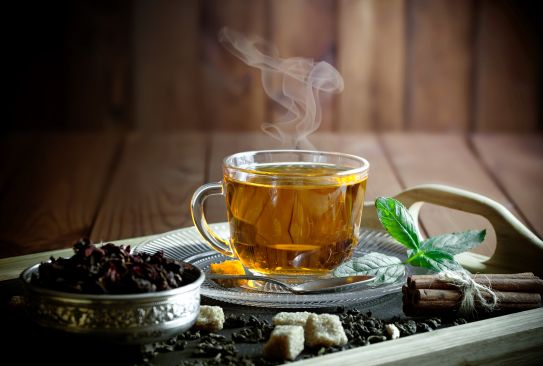Caffeine is a stimulant that has many benefits, such as helping you feel more alert and having an increased metabolism. It can also improve your memory and increase your energy levels. Caffeine has been around for a long time, so it’s no surprise that most people consider it to be a part of their daily diet.
Although caffeine is very popular in our society, many people don’t realize that caffeine isn’t actually considered to be one of the major nutrients that you need on a daily basis. It’s important to remember that caffeine is not one of the macronutrients (such as protein, carbohydrates, or fat) that you need on a daily basis to maintain good health.
Does Tea Contain Caffeine?
Mostly, when people think of caffeinated drinks, they turn to coffee and soda. Those are the most common beverages that contain caffeine, but they are not the only beverages that contain caffeine. In fact, tea contains a lot of caffeine, but it is a very small amount compared to other caffeinated drinks.
What Does Caffeine in Tea Do For You?
The effects of caffeine on your body are numerous. It can increase your energy levels, so you feel more alert and focused. It can also improve your memory and help you stay focused for longer periods of time. In addition, it can help improve your metabolism, which helps you burn fat more efficiently than normal.
In terms of weight loss, caffeine has been shown to have a positive effect on the body’s ability to regulate appetite and stimulate thermogenesis (the production of heat in the body). In other words, drinking tea with caffeine is said to help you lose weight by helping to control cravings for high-calorie foods.
How Much Caffeine Is in Tea?
Most people know that coffee contains a lot of caffeine, but they may not realize that some teas contain quite a bit as well. For example, black tea contains about 40 milligrams per cup, which is about the same amount of caffeine as in a half cup of coffee. Green tea contains about 30 milligrams per cup, which is about one third the amount of caffeine as in a cup of coffee.
Some people may not realize that green tea contains a lot of caffeine because it is sold as “decaffeinated” and they may think that it’s not caffeinated at all. However, this isn’t the case because green tea still contains a significant amount of caffeine. Still, tea usually contains less caffeine than there is in coffee.
Can Caffeine in Tea be Harmful?
Although it is not harmful in most cases, caffeine can still be harmful if you have a medical condition that requires you to avoid drinking caffeinated beverages.
If you have diabetes or any other type of condition that requires you to avoid drinking caffeinated beverages, then you should always check with your doctor before consuming tea. In addition, if you’re someone who may easily become addicted or dependent on caffeine, you should practice a little caution when you drink tea.


